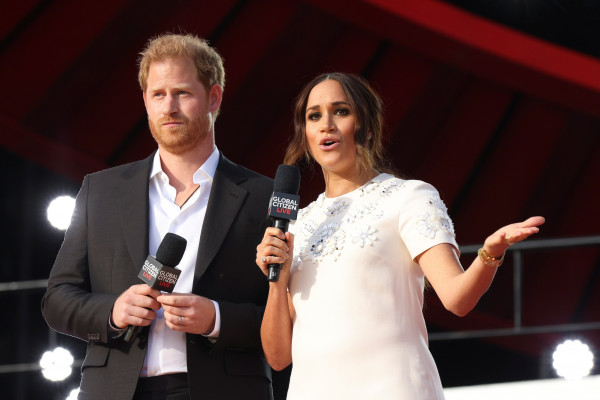Sussex 'Self-Promotion Tour' in Colombia: Royal Expert Slams Harry and Meghan's Motives

Prince Harry and Meghan Markle's four-day tour of Colombia, which began on August 15, has ignited a firestorm of criticism and speculation about the couple's intentions and the tour's potential impact. As the Duke and Duchess of Sussex navigate their post-royal roles, their visit to the South American nation has raised eyebrows among royal watchers and local observers alike.
Robert Jobson, a prominent royal author and expert, offered a scathing assessment of the tour's purpose. Speaking to the Daily Express, Jobson stated, "Harry and Meghan, however, have one reason for this 'tour' — self-promotion, to keep themselves in the spotlight so they can continue to trade on their royal links while demanding privacy when they are having their downtime." This characterization underscores the ongoing tension between the Sussexes' desire for independence and their continued association with the royal brand.
The couple's arrival in Bogotá was met with a mix of curiosity and confusion. Jobson noted, "When Harry and Meghan touched down, it wasn't just the Colombian sun that made people squint. It was the blinding glare of their celebrity. Confused locals are asking, 'Are they here to help?'" This observation highlights the disconnect between the Sussexes' global fame and the local context of their visit.
One of the primary concerns raised by critics is the financial and logistical burden of the tour. A former palace insider, speaking on condition of anonymity, suggested that the couple might be "putting a burden" on Colombia, which may have only a "limited amount of methods of keeping them safe." The question of who is footing the bill for the Sussexes' "flights, their security" and "their luxury accommodations" remains a point of contention, with Jobson wondering if the couple are being used as a "shiny distraction."
Despite these criticisms, the tour does have an official agenda. The Sussexes were invited by Colombian Vice President Francia Márquez, and their itinerary includes visits to local schools to advocate for greater awareness of mental health and to encourage digital literacy. On their first day, they visited the Centro Nacional Cultura Popular, a city center public school, where they discussed an anti-cyberbullying project with staff and students aged 12 to 18.
However, some observers question whether the Sussexes' presence might overshadow the pressing social and political concerns in Colombia. Jobson argued, "If anything their arrival has highlighted the deep divisions in a country still fighting to find its way." This sentiment reflects broader concerns about the role of celebrity diplomacy in complex political environments.
The tour has also reignited discussions about the couple's relationship with the British royal family. An unnamed source, quoted in OK! magazine, claimed that "Meghan sees this Colombia tour as her chance to prove to the world what a big star she is and how much the royal family misses her." The source added that the couple feels they "really shine when meeting dignitaries and locals," positioning themselves as an "alternative royal family."
This positioning harks back to the Sussexes' initial departure from the UK, when they proposed developing a "progressive new role" within the monarchy while supporting Queen Elizabeth. However, their subsequent move to California and the stripping of various royal privileges has complicated this vision.
As the tour progresses, with stops planned in Cartagena and Cali, the debate over its purpose and impact is likely to continue. The Sussexes' efforts to champion causes such as digital safety and mental health awareness will be weighed against perceptions of self-promotion and the complex dynamics of their post-royal status.












